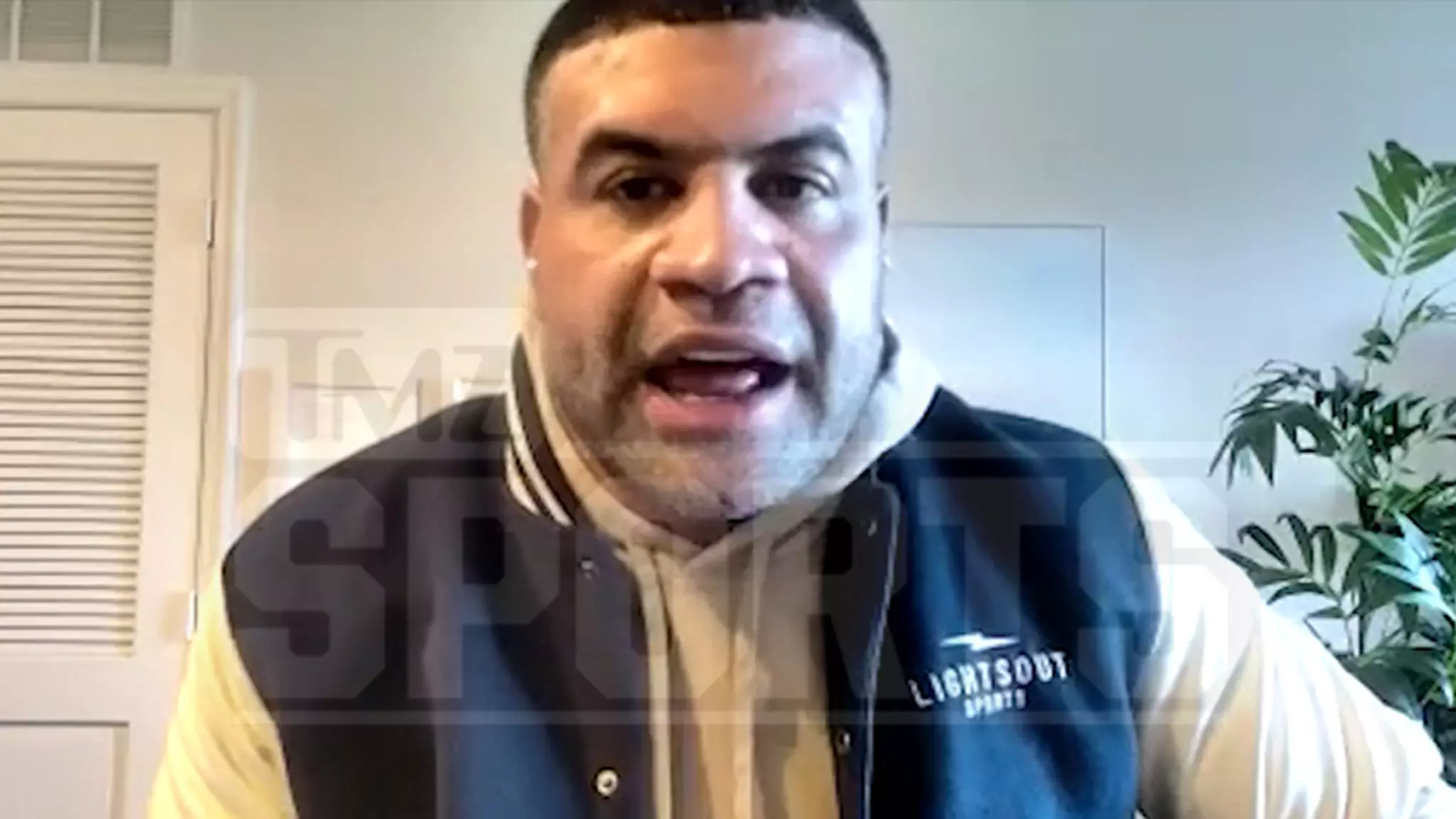In the competitive realm of professional sports, reputation is everything. Athletes spend years, sometimes decades, building a positive image, garnering respect from peers, fans, and analysts alike. However, as former NFL All-Pro Shawne Merriman articulated, all that hard work can unravel in an instant. The case of San Francisco 49ers linebacker De’Vondre Campbell exemplifies this precarious balance between triumph and downfall, as one troubling incident risks tarnishing his entire career.
Campbell’s recent decision during a pivotal game against the Los Angeles Rams has drawn sharp criticism. When fellow linebacker Dre Greenlaw suffered an injury, one would expect a veteran player to seize the opportunity to step back into play. Instead, Campbell opted not to enter the field, a decision that left teammates and analysts questioning his commitment and reliability. Merriman weighed in, expressing his belief that this singular act would define Campbell’s reputation moving forward. The retired player echoed a sentiment that is familiar to anyone who has followed sports; an athlete can build an exquisite legacy, but a single error can eclipse years of hard work.
The 49ers organization was not silent in the wake of the incident. Players like Charvarius Ward and George Kittle publicly criticized Campbell, highlighting the betrayal felt by teammates who rely on one another in high-stakes situations. Such condemnation from teammates only amplifies the fallout of Campbell’s decision, framing it as not just a lapse in judgment, but a broader failure to support the collective effort of the team.
Merriman’s assertion that Campbell’s career may reach an early conclusion due to this incident raises a critical question: can one mistake overshadow an otherwise commendable career? In the world of sports, this seems not only possible but likely. The narrative surrounding an athlete shifts rapidly when an issue arises, especially if it casts doubt on their reliability. Campbell, who had until now been recognized as a capable player, may find himself relegated to the sidelines, not just in the eyes of fans but also within the calculations of team management across the league.
The notion that Campbell’s career might suffer irreversibly raises larger questions surrounding athlete conduct and accountability. This incident serves as a cautionary tale, underscoring the pressure athletes face in upholding their reputations and the scrutiny that follows their every decision. Merriman’s comments reflect an industry standard that demands excellence, not only in performance but also in professionalism.
While the road ahead appears grim for Campbell, the potential for redemption is not entirely extinguished. Merriman suggests that a public and sincere apology could help mend some of the damage inflicted by this incident. Crafting a heartfelt message acknowledging the error in judgment may encourage teams to reconsider his value, allowing him to demonstrate his understanding of the mistaken choice he made.
This idea of redemption, however, is laden with ambiguity. The effectiveness of an apology often hinges on the sincerity perceived by the audience—teammates, coaches, and prospective teams alike. If Campbell fails to address the situation and offer a genuine reflection, he risks solidifying the reputation of being unreliable, further stigmatizing his entry into future team dynamics.
The saga surrounding De’Vondre Campbell is not just about sports; it encompasses the essence of human judgment and the swift consequences that follow. In a world that values results, every athlete must navigate the fine line between personal decisions and the expectations set by their profession. Campbell now stands at a critical juncture—one that could redefine his career trajectory. In an environment where every decision is magnified, he must recognize the weight of his actions and the potential for both downfall and redemption.
As fans and analysts await Campbell’s next steps, the conversation extends beyond one player. It invites introspection on the pressures athletes face and the complexities of reputation in the high-stakes atmosphere of professional sports. Campbell’s situation serves as a reminder: reputation, once built, can be fragile and must be nurtured with care and integrity.

